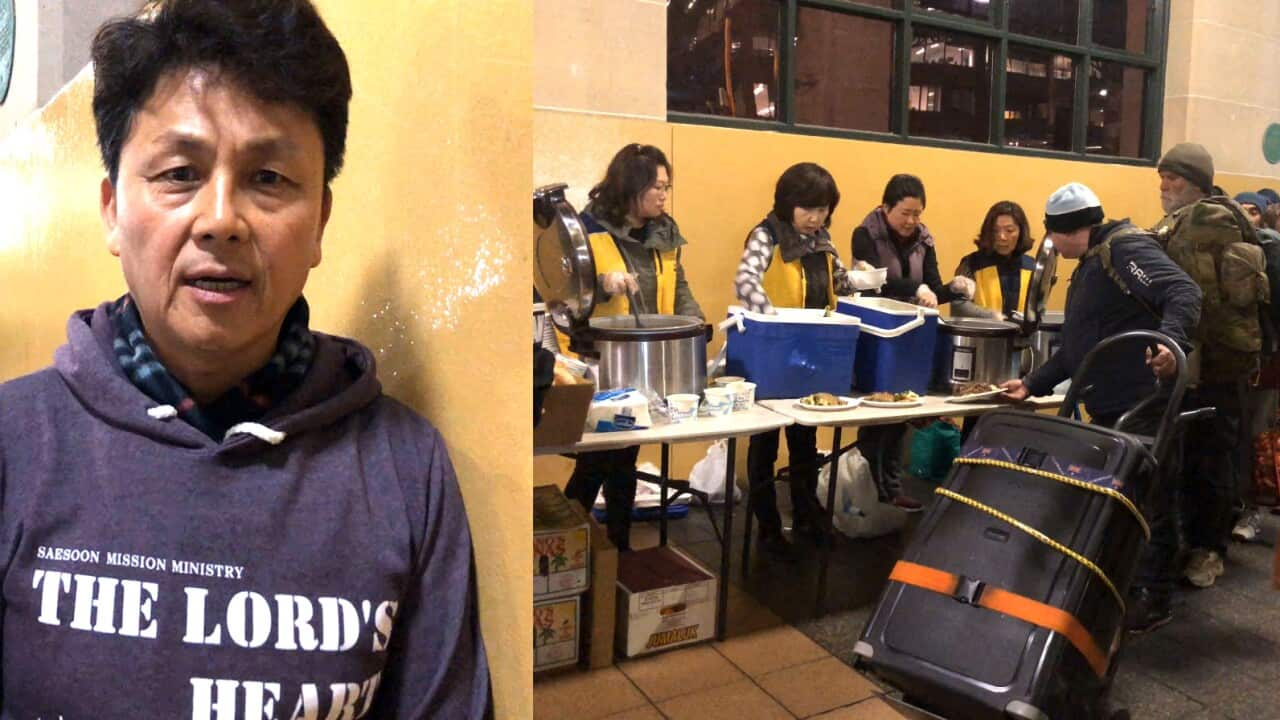On a brisk autumn evening in front of Sydney’s Central Train Station, people wait in a queue.
Soon a van will arrive, and several people will spring into action to assemble tables, big thermal bottles containing hot water and soup, and large containers full of hot food and fruit.
When everything is placed on the tables, the street dinner is ready to be served.
Those who wait for this free meal are homeless, and those who offer the dinner are members of Sydney’s Korean community.
About 3,000 migrants of Korean heritage interchangeably take part in the exercise of offering a warm dinner six days a week in front of the iconic train station, and estimates suggest they serve more than 25,000 homeless people per year.
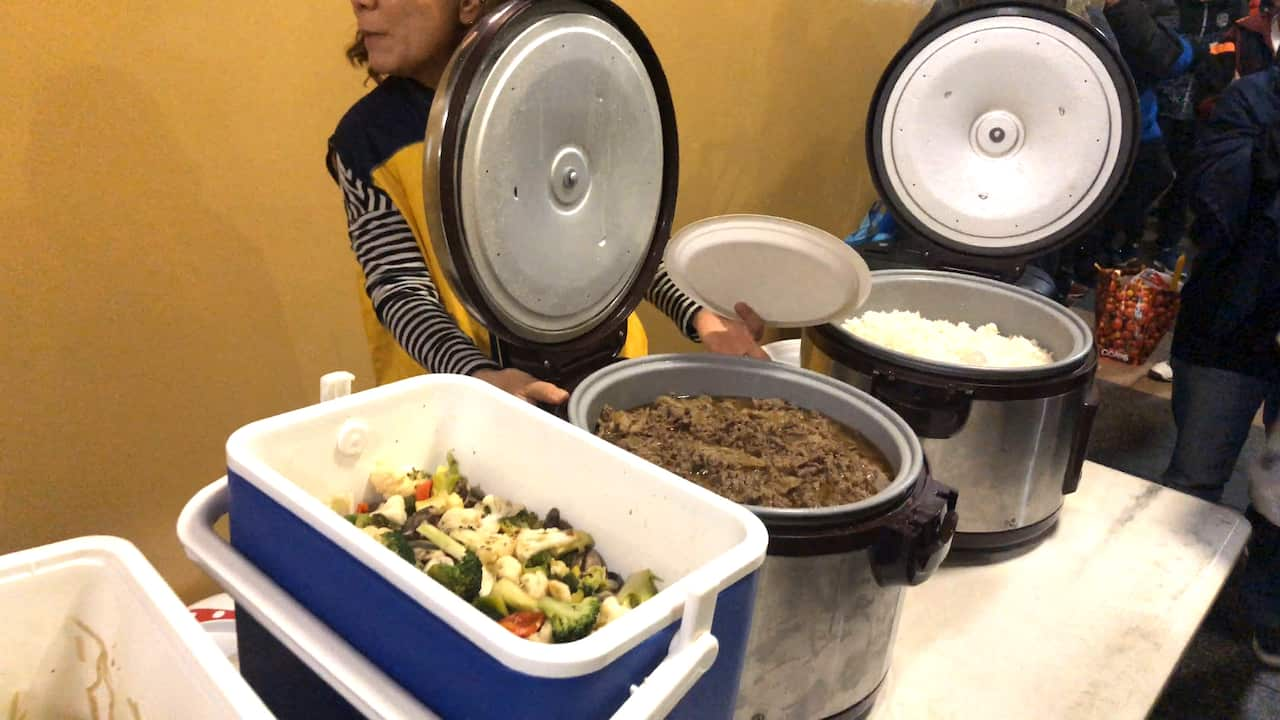
Most of the volunteers belong to religious organisations in the migrant community, mainly local churches, though there are also many individuals who just want to offer their help.
The charitable gathering was started by Korean-Australian Jung Sang Ihn and his wife seven years ago as a way to give back to the country.
“As a migrant, it was really hard for us to settle down in this country and a lot of Australian people helped us. They helped us to speak English and they helped us with everything to settle down here. It is time to pay Australian people back; this is the way we say thanks to them,” he says.
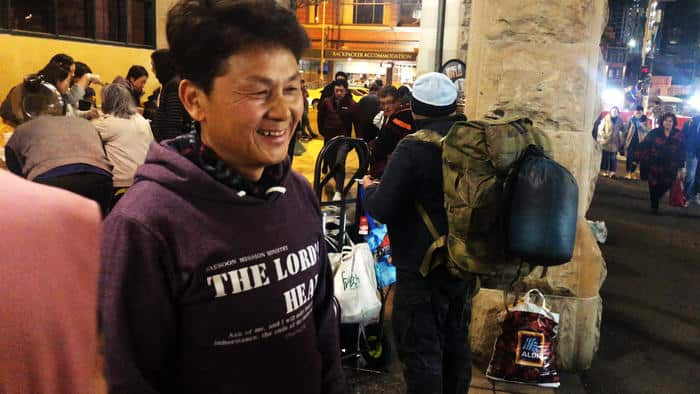
“As time goes by some people around us found out about it.
“As I go to a church, many members of our congregation joined us and after the activity was reported by community media more people in the broader society participated with us. Not every volunteer is a Christian now. Most of them have Christian beliefs, but many people are with us regardless of their religion.”
Korean classics such as Bulgogi and Japchae are some of the more popular dishes served.
Volunteers do the grocery shopping from their own pockets and prepare the dishes at home.
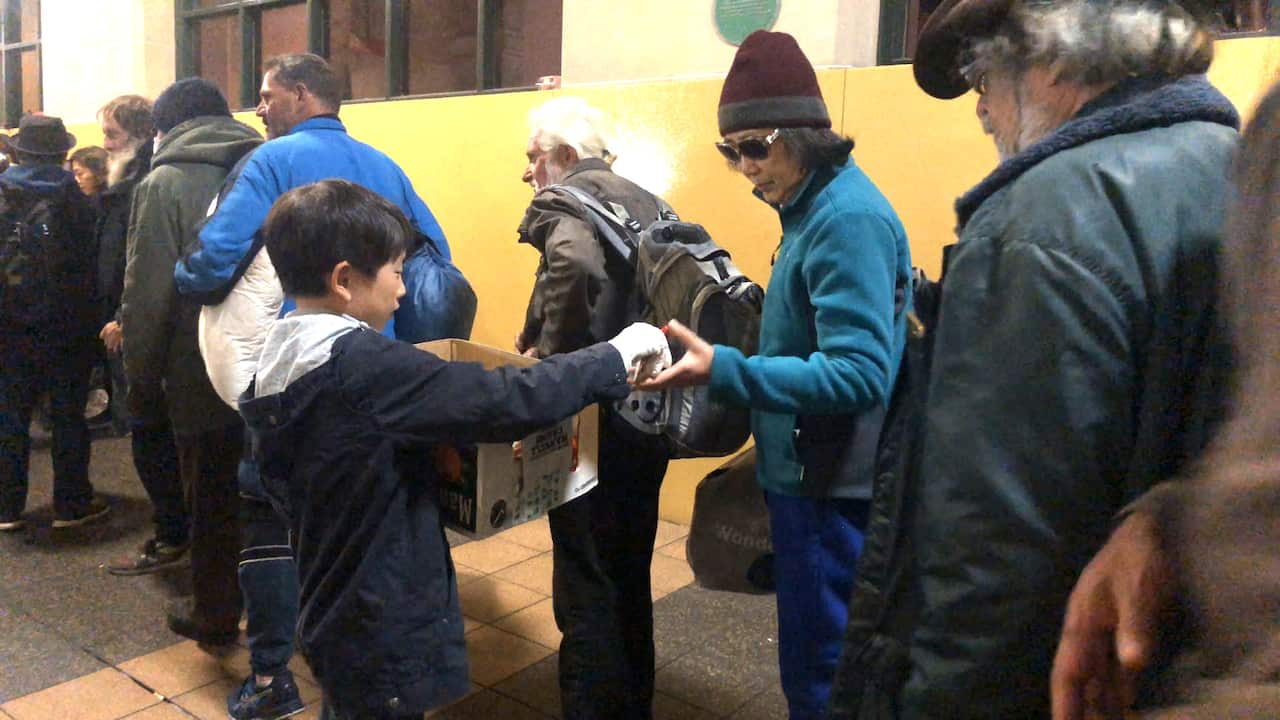
Volunteer Young Shin Sohn says the group prepares food for between 120 and 150 people per night and the volume means that servings can be consumed the following day.
“They eat dinner but then they have nothing to eat for tomorrow, so some people spare some foods for their breakfast,” she says.
“They eat once, then come back again, so we prepare a generous amount of food for their takeaway portion. We have Korean foods today, but we also have minestrone because they like soup."
“As they don’t have many opportunities to have warm meals, they love to have hot soup even in the hot summer time. Therefore, we try to provide as many hot foods as we can prepare because they like them.”
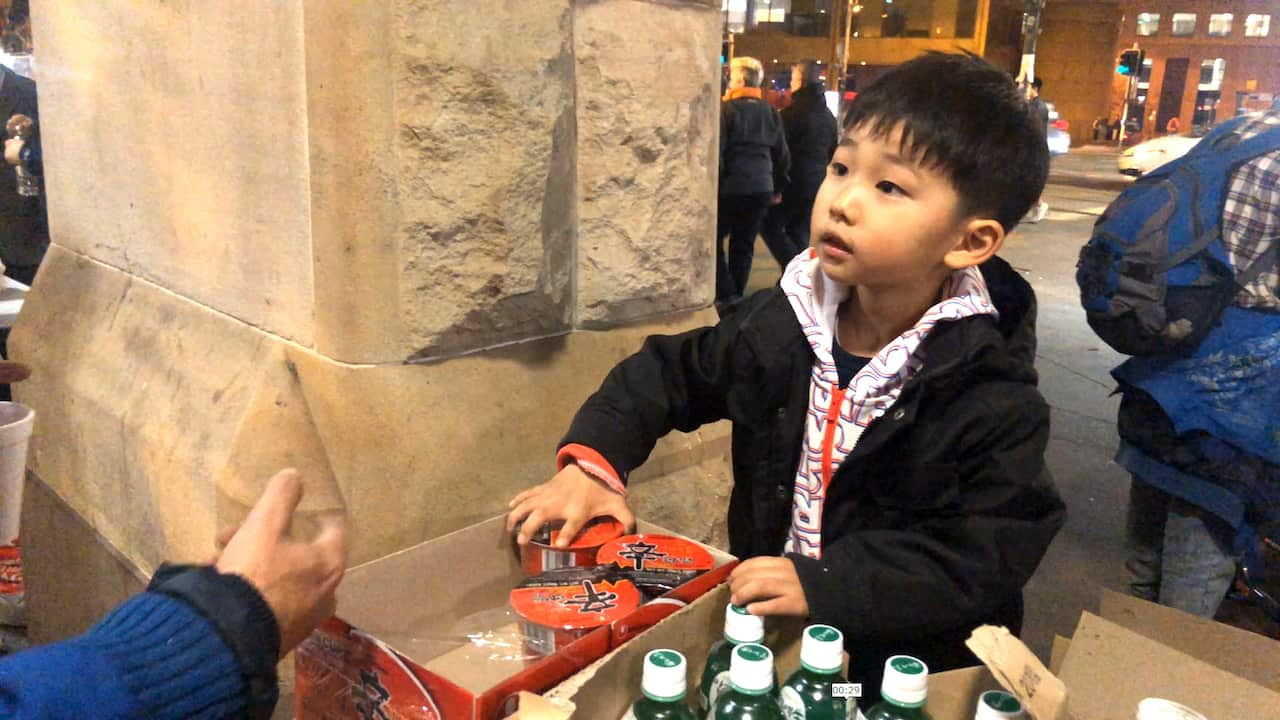
Volunteer Sung Hak Lee says he volunteers because he knows firsthand the hardships felt when a person is helpless.
“When you experience hardship, you can understand others’ suffering. When we look back, we can closely feel these [homeless] people’s pain and difficulty,” he says.
“We think what we are doing is nothing special but something that we must do. We delightedly want to continue this work.”
Volunteering is a way for Hee Myung Kang to show his son the value of generosity.
“Somebody needs to help them because they need help. This volunteering work is an excellent opportunity for me to teach my son how to have a warm heart that can give love to others,” he says.
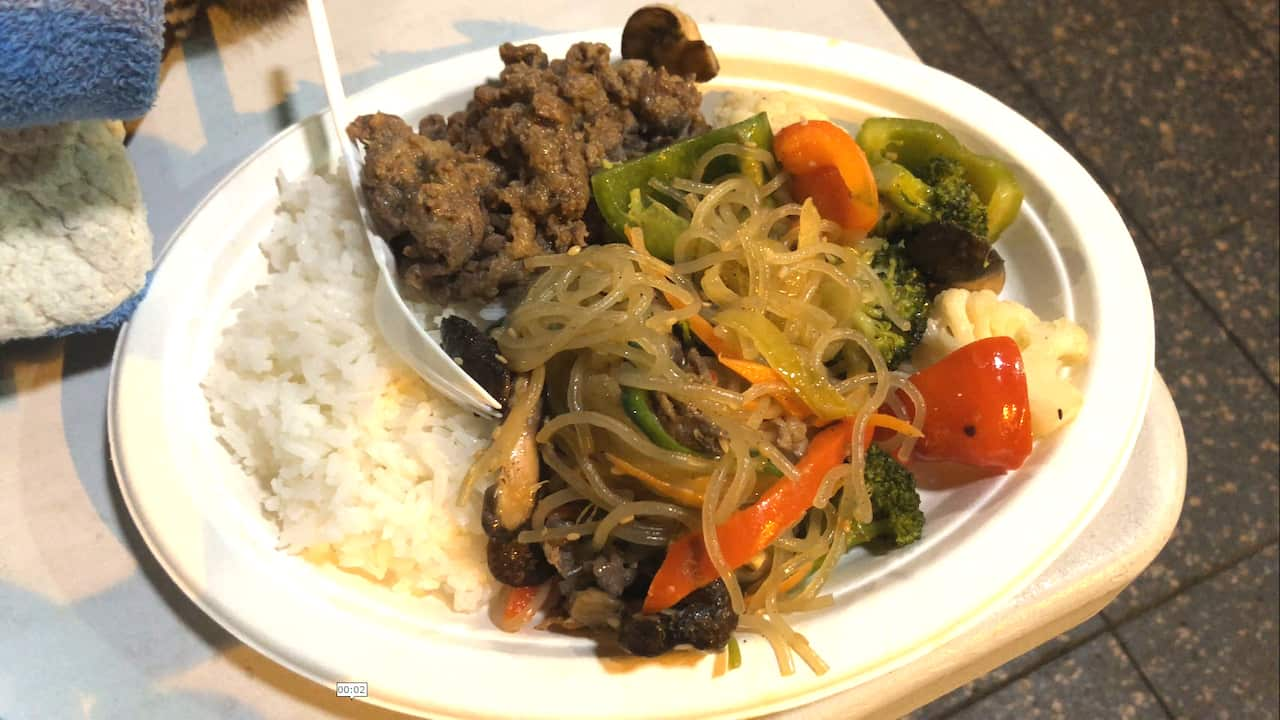
Serving homeless people has been a joy to the volunteers, but it has not been easy to continue the charity work over the seven years.
Jung Sang Ihn says some have taken more of a sceptical view of their activities.
“When we say we serve the homeless community, a lot of people question us, saying ‘why do you need to offer this service in a country which has such a good welfare system?’,” he says.
“However, [in the homeless community] there are many Australians as well as migrants who failed. I think regardless of the welfare system, it is the right thing to help people in need."
The dishes have been a hit on the streets.
“It’s very helpful, if we don’t get the food here, then we have to go sit on the corner with a sign saying ‘please help, give me money’ and rely on people’s loose change in their pockets,” Sam says.
“Korean people are very friendly and outgoing and they like to help people. They have personalities to help people."
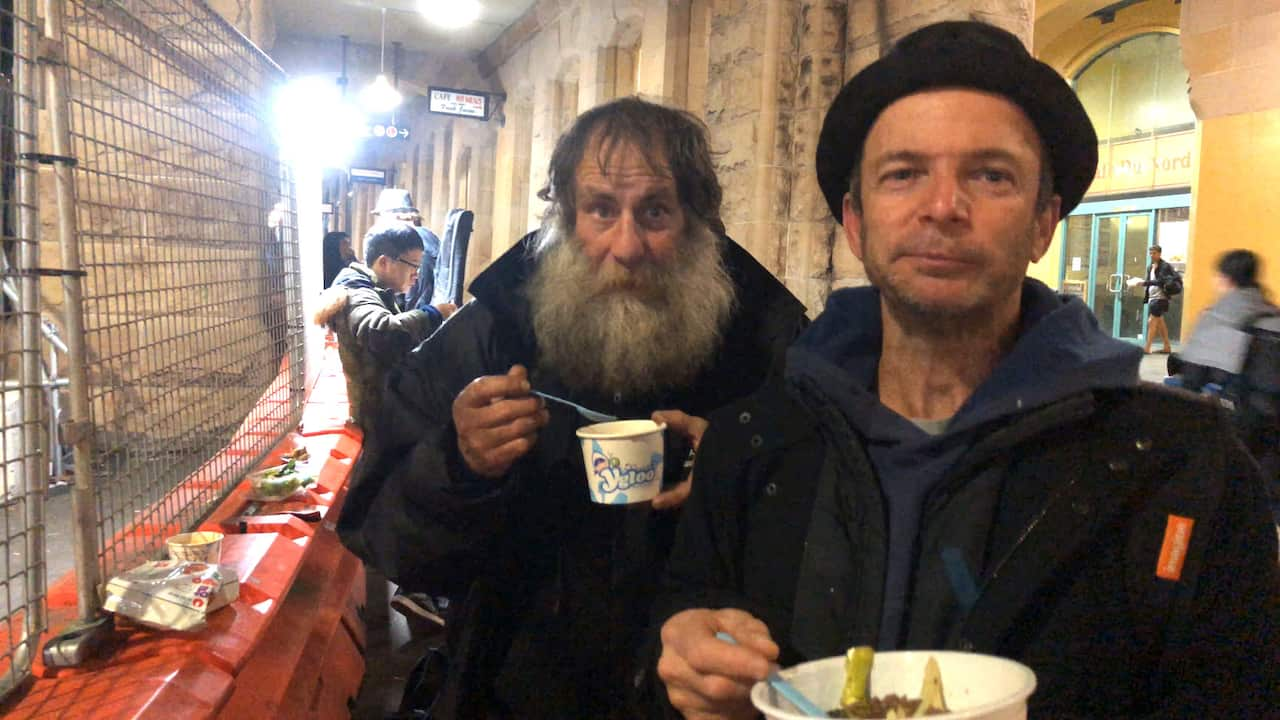
And some say the volunteers are quietly spreading the message of hope in the street.
“It gives people hope because these are people who are taking time out of their everyday lives to come here to give people food,” Julien says.
“[It is] just being a human. That’s what we all should be with each other. These things are really important.”
Rev Michael Smith of Jesus Cares Ministry, an organisation which has been dedicated to the homeless for the past thirty years, says the support of Korean migrants has had a significant impact.
“I think it’s beautiful. For so long, decades ago, immigrants looked out for these people,” he says.
